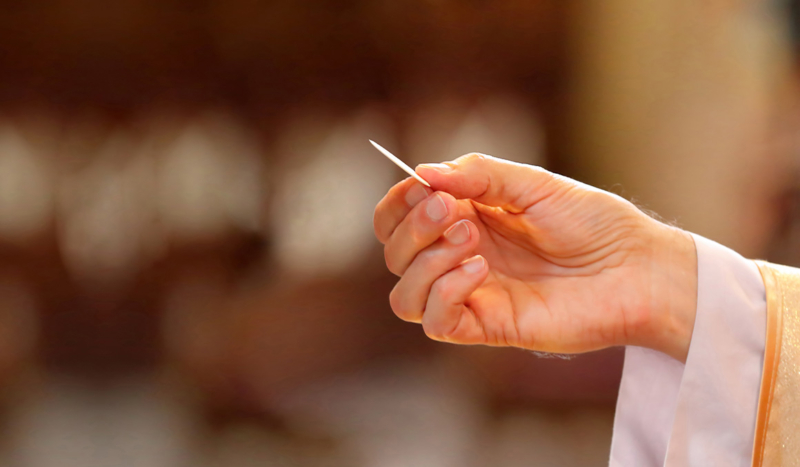
CV NEWS FEED // In a talk at the National Eucharistic Congress, Catholic apologist Trent Horn provided arguments against two fundamentalist attacks on the Eucharist, disproving claims that the Eucharist has pagan roots or is merely symbolic.
Horn began with the fundamentalist argument that the Eucharist was stolen from ancient pagan traditions and brought into the Church by Emperor Constantine. Fundamentalist Protestants then declare that the similarities between pagan rituals and the Eucharist make it impossible to believe in the validity of the Sacrament.
Horn said that the pagan argument quickly turns into an atheistic argument, saying that Protestants only undermine their own religion when trying to devoid themselves of all pagan similarities.
“I was so frustrated when I would hear this, I wanted to take these people and shake them and say, ‘Look, don’t you know what you’re doing. You’re undermining the very foundation of Christianity itself,’” Horn said. “If you’re saying a good argument against Catholicism is, ‘Hey, this Catholic thing kind of sounds like paganism, therefore it is pagan—Well, what are you going to do when you have atheists who say the same thing about Jesus?”
According to Horn, Jesus has been compared by anti-Christian propagandists to the Egyptian god Horus.
Horn said that the second argument, claiming that the Eucharist is only symbolic, is the most common attack. Fundamentalist Christians cite Luke’s account of the Last Supper (Luke 22:19: “Do this in remembrance of me”) calling it only an action to remember Jesus’s presence on Earth.
Horn refuted the symbolism argument with a different Scripture passage, quoting John 6:53-57: “Unless you eat my flesh and drink my blood, you have no life within you. Truly, truly, I say to you, my flesh is true food and my blood is true drink.”
He also pointed out that “in memory of me” means “offer a memorial sacrifice” so that God will remember what Jesus has done—and to do that, Catholics need to offer “His very Son.”
“The only thing that we can offer to the Father is the Son that he has offered us, the Lamb of God,” Horn added. “I truly believe that many Protestants have a hard time wrapping their head about the Eucharist, thinking the purpose of the Eucharist is just to remember something Jesus did 2,000 years ago, and it’s not something that continues into the present day.”
Horn additionally directed fundamentalists to St. Paul’s writing in 1 Corinthians 11:27: “Whoever, therefore, eats the bread or drinks the cup of the Lord in an unworthy manner will be guilty of profaning the body and blood of the Lord.”
“Not the symbol of, not something representing [it],” Horn said. “Paul is saying here that by profaning the Eucharist you don’t profane a symbol, we profane the Lord himself.”
Horn also said that fundamentalists also argue that if the Eucharist truly is Christ’s Body and Blood, Catholics are cannibals when they receive the Eucharist.
He turned the accusation around, pointing out that if Catholics are cannibals, Protestants are symbolic cannibals. He also added that cannibalism is consuming the flesh of a dead person, but receiving the Eucharist is eating the living flesh and blood.
Horn concluded by citing Anglican scholar Anthony Thisleton, who wrote: “the Eucharist enables Christians to participate in the deliverance of the Cross as if they were there. They are contemporaneous sharers in the drama.”

